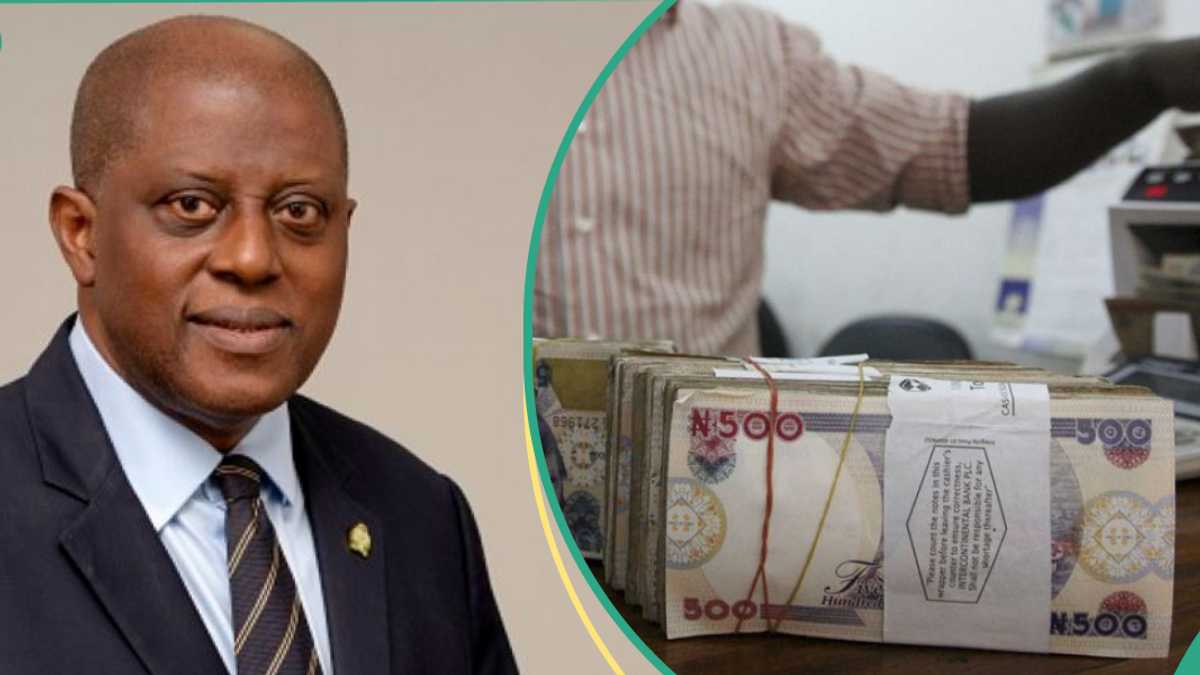Analysts have urged the monetary authority to keep intervening, particularly in times of liquidity scarcityThey predicted foreign portfolio investors’ inflows, the relative stability of the naira, and lucrative carry trade opportunitiesIt is anticipated that each of these will support the liquidity of the foreign exchange market’s ongoing strength
Henzodaily.ng journalist Zainab Iwayemi has 5-year-experience covering the Economy, Technology, and Capital Market.
The monetary authority has been urged by analysts to continue its interventions, especially when there is a shortage of liquidity.
Analysts warned that the announcement of January’s CPI data will have an impact on the course of market activity. Photo Credit: CBN
Source: Getty Images
They forecasted that the naira’s relative stability, attractive carry trade opportunities, and inflows from foreign portfolio investors (FPIs) would all contribute to the continued strength of the foreign currency market’s liquidity.
Additionally, they cautioned that the direction of market activity will be influenced by the release of January’s CPI statistics.
They upheld the medium-term prediction that a reduction in rates would be the outcome of the Federal Government’s reduced borrowing pace and the expected direction of monetary policy administration.

Read also
No more N1,660: Naira finally appreciates against dollar in parallel market, experts give reasons
Even when the CBN stepped in and sold about USD66.45 million to authorized dealers, the naira declined by 0.5% to NGN1,509.70/USD at the Nigerian Foreign Exchange Market (NFEM), according to a recent report from the CBN.
In addition, the nation’s foreign exchange reserves continued to fall, falling USD 307.19 million w/w to USD 39.10 billion on February 13.
In their “Weekly Economic and Market Report,” Cordros Securities Researchers pointed out that the apex bank EFEMS, which boosted market confidence, was responsible for the strong short-term foreign exchange inflows.
” In the near term, we expect foreign exchange market liquidity to remain strong, driven by inflows from foreign portfolio investors (FPIs), supported by attractive carry trade opportunities and a relatively stable naira.
“However, global uncertainties, including the ripple effects of US trade tariffs, pose a significant risk.
“Additionally, we anticipate that the CBN will maintain its interventions, particularly during periods of liquidity shortages.

Read also
Importers to pay more to clear goods as CBN raises Customs duty rate
“As a result, we foresee the naira holding steady in the short term”.
In an interview with Daily Independent, Adewale Oyerinde, Director General of the Nigeria Employers’ Consultative Association (NECA), said that the CBN’s new EFEMS policy could be a game-changer, bringing efficiency and transparency to Nigerian foreign exchange trading and helping to resolve some of the country’s foreign exchange issues.
Given that naira returns are still appealing, he contended that the strong performance of FPI inflows will boost investor confidence and encourage more FPI participation in the Nigerian Capital Market.
According to Oyerinde, the market is still being taunted by speculators, which has caused the naira to continue declining in both official and unofficial foreign exchange (FX).
The CBN’s EFEMS decision, according to Dr. Muda Yusuf, Founder/CEO of the Center for the Promotion of Private Enterprise (CPPE), told Daily Independent, could increase the non-oil sector’s potential to become a significant source of foreign exchange earnings and the engine of economic growth by encouraging local business activity to support export activities and fortify channels for dollar inflow.

Read also
Top Nigerian investment firm predicts new naira to dollar exchange rate by March 2025
“The CBN’s newly introduced Electronic Foreign Exchange Matching System (EFEMS) is a positive step towards greater transparency and efficiency in the foreign exchange market”, he said.
In order to maintain pricing and financial stability in the nation and capitalize on the benefits of the African Continental Free Trade Agreement (AfCFTA), he pleaded with the monetary policy authority to reevaluate its reform initiatives.
The Executive Director of the Civil Society Legislative Advocacy Center (CISLAC), Auwal Ibrahim Musa (Rafsanjani), argued for the necessity of business-friendly laws and regulations that will boost the regulatory environment and rebuild trust.
He added,
“There is need for not only competitive returns, but also investors’ confidence and an enabling environment in which clear and robust policies, good infrastructure and business friendly regulations are a major component”.
CBN urges telcos to produce SIM cards
Henzodaily.ng reported that the Central Bank of Nigeria (CBN) has called on companies in the telecommunications sector to consider local production of sim cards, and other components to save Foreign Exchange.

Read also
Speculators lose big as naira remains stable, CBN releases new FX rates
The CBN governor, Olayemi Cardoso, explained that adopting such backward integration strategies could encourage the growth of the sector, and also reduce pressure on foreign exchange.
Cardoso noted that elements such as sim cards, towers and cables could be produced locally to help the local economy, create jobs, and reduce the need for FX.
PAY ATTENTION: Сheck out news that is picked exactly for YOU ➡️ find the “Recommended for you” block on the home page and enjoy!
Source: Henzodaily.ng
